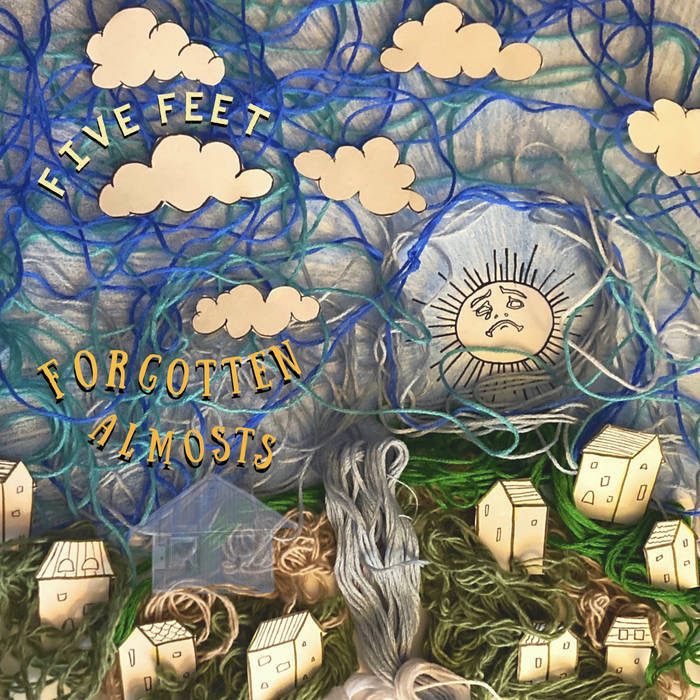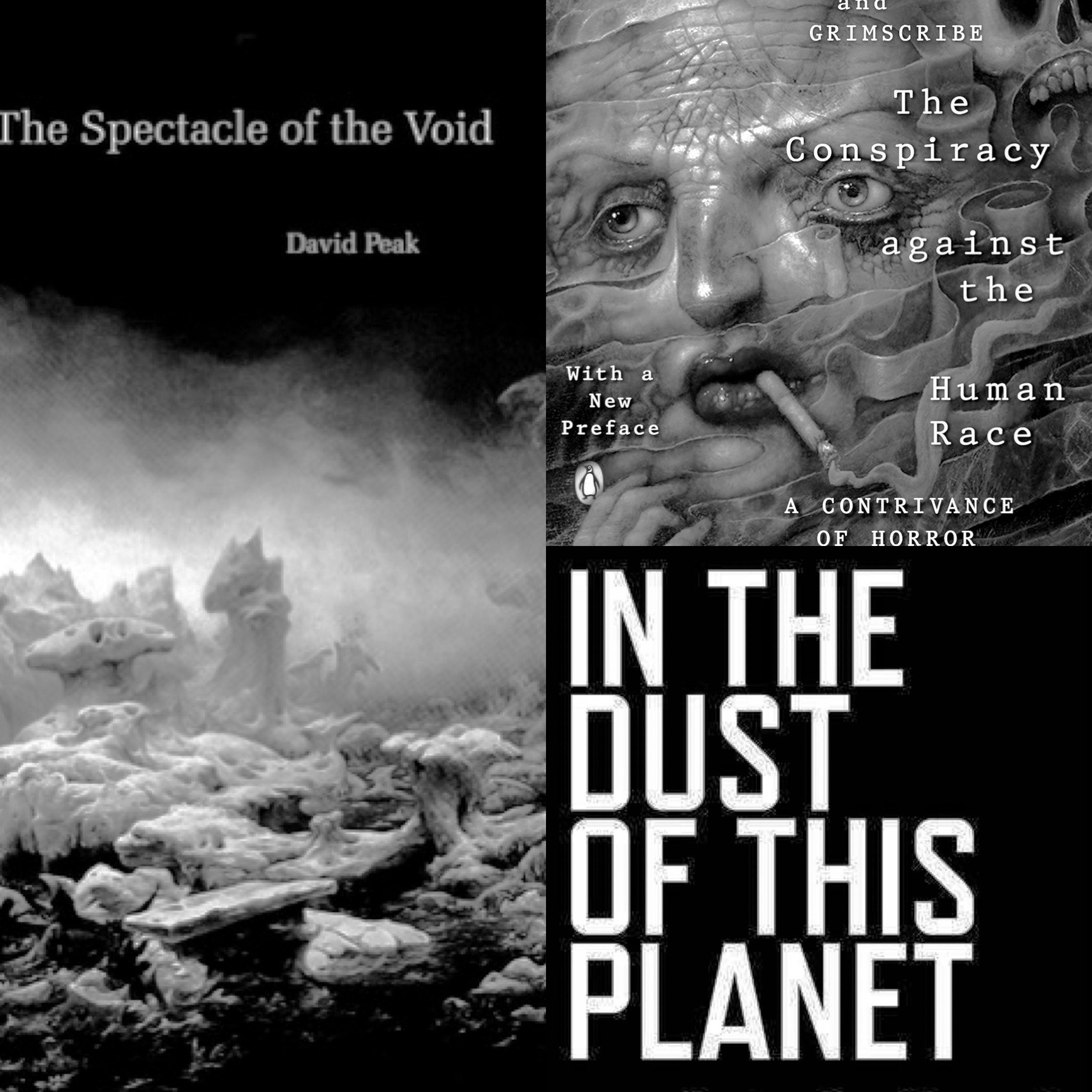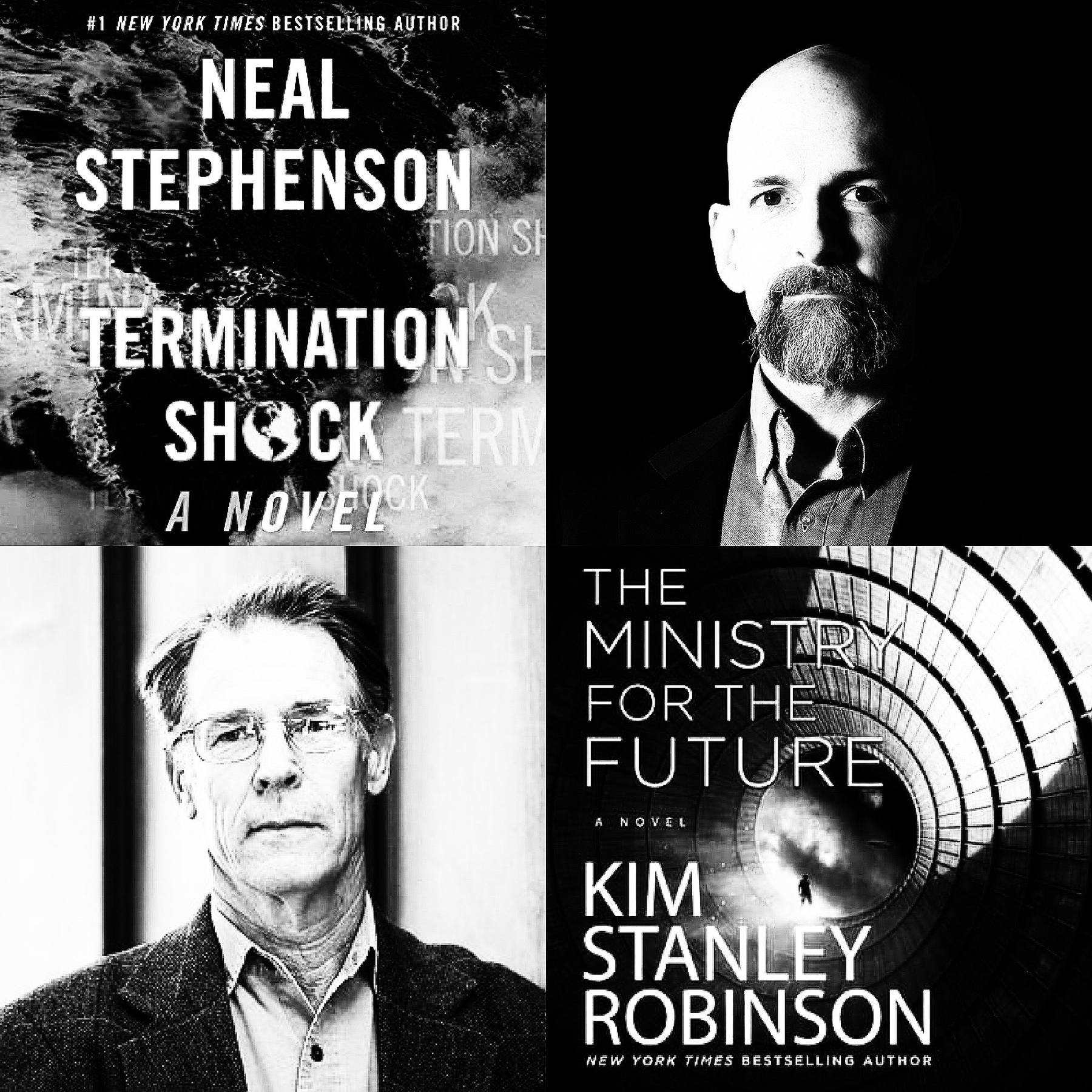-
Forgotten Almosts/Five Feet

When the opening lyrics to a record are “My fight or flight is kicking in, and the bad news for you is I’m no good at flying,” you know you are in for something powerful. I was fortunate to catch Five Feet live as part of the 2022 Bones & Arrow Fest, hosted by Dead Archer Records. Based on the strength of that performance, I hit up Bandcamp, where I picked up their most recent release, Forgotten Almosts. Billed from Manchester N.H, Five Feet are singer/guitarist Alanah Tintle, guitarist/horn player Luis Hernandez, bassist/keyboardist/backing vocals Zack Lyons & and drummer Tyler Seiders. Their sound draws from Blues, Jazz, Mainstream Pop, Latin and then some. Released May of ‘22, recorded at Black Lodge Audio and self-described by the band, “Forgotten Almosts is a collection of songs about being haunted by everything other than ghosts.”
Forgotten Almosts is an ep of sorts, as 3 of the songs had been previously released. Although, this writer suspects these songs were meant to go together on some level. The six songs, clocking in at 19:50, are sequenced perfectly to form a complete listening experience. For friends & longtime fans, though, this should be no surprise, as Five Feet have been around for a while. Tintlel & Seiders are credited on their first Bandcamp offering (NoDiving) dating back Nov ‘18. It should also be noted that these folks are skilled as this is a well-executed project, from the recording & production right down to the artwork. These songs ring personal, connected & with a certain conviction.
“Avian Law” leads off the record with a dreamy sounding, beautifully delivered vocal from lead singer Tintle. Her voice intertwines wonderfully with Hernandez’ equally dreamy guitar tone.
The second tune is “Spirit Box.” Per Tintle, this is a song she wrote: “after having a conversation with George Barber about ghosts and whether they exist.” The dynamics of the percussion, notably the cymbals, are tastefully dropped by TylerSeiders.
Next is “California Spiderkiss,” in which bassist Lyons duets, along with Tintle. You get an earnest back and forth that brings the listener into the convoluted fray, only for the subjects to proclaim, “I’d be happier if you never kissed me.” All this is delivered on top of a hypnotizing horn riff and a guitar tone that the Edge would be proud of.
The instrumental “Splinter” serves as a segue into “You’re It.” This track finds Lyons in a vocal harmony position and equally effective. This is about as heavy as Five Feet get as the foursome rock, and I use that term loosely, some bass, drum, power chord magic. Closing the record is the sweet sounds of “Look Both Ways.” While lyrically suggestive, the song itself has the vibe of a lullaby. Hernandez’s guitar and Tintle’s voice are the perfect way to close out the record & set you adrift.
Five Feet have a pretty active social media presence and refer to their fans as pals. This struck an extremely pleasant chord with this writer as my Dad used to call us kids. Something that my siblings and I still do to this day. When scrolling their socials, among the band photos & the lyrics, one can’t help but notice that Five Feet is an extremely social and politically conscious outfit. You will find links to support causes such as the protection of basic human rights for the most vulnerable, reproductive freedom & the ongoing awareness of the LGBTQIA2S+community. Five Feet are a breath of fresh air in this day &age as they are a band of principals. Recently, they chose to cut ties with one of their favorite venues after it was discovered that said venue had employed a convicted sex offender. Fear not though, Five Feet still have plenty of places to play in the state of NewHampshire, all of New England & beyond.
Keep up with Five Feet via their website, check out some of their pals over at Dear Archer Records & see a plethora of acts, both local & national, at the Stone Church.
Ron Nizi
-
Nihilism in the 21st Century

When it comes to plunging into the abyss of existential dread and nihilism, three books stand out in the weird horror genre: David Peak’s The Spectacle of the Void, Thomas Ligotti’s The Conspiracy Against the Human Race, and Eugene Thacker’s In the Dust of This Planet. These works provide distinct and valuable perspectives on the theme, rendering them worthy of attention.
The Spectacle of the Void is a concise but potent read that delves into the heart of human anxiety and despair. Peak’s vivid imagery and stark prose produce an immediate and enduring sense of unease, delivering a haunting and unforgettable experience.
Ligotti’s The Conspiracy Against the Human Race is a dense philosophical treatise that argues that human existence is inherently meaningless and a blunder. Although this may sound disheartening, Ligotti’s writing is intricate and challenging, drawing on numerous philosophical, literary, and psychological sources. For those willing to invest the effort, it is an exceedingly rewarding experience.
Thacker’s In the Dust of This Planet takes a more poetic approach to the subject matter, drawing inspiration from the works of Nietzsche and Heidegger. It provides a more accessible entry point into the theme than Ligotti’s dense philosophical musings. Thacker’s writing is lyrical and evocative, creating a haunting and beautiful atmosphere.
These books offer a one-of-a-kind and valuable perspective on the nature of existence and the human condition. They explore the theme of existential dread from various angles, making them indispensable reads for anyone interested in exploring these ideas.
The themes explored in these books are relevant to humanity’s challenges in the 21st century.
As we confront the devastating impacts of climate change, we are faced with the reality of our mortality and the frailty of our existence. The existential dread and nihilism explored in these books can assist us in coming to terms with our place in the world and the limits of our power. Thacker’s In the Dust of This Planet underscores the vulnerability of our existence in the face of cosmic indifference and the potential for environmental collapse. This perspective helps us comprehend the urgency of addressing climate change.
The ongoing conflict in Ukraine is a tragic illustration of the horrors of war and its impact on human life. Ligotti’s The Conspiracy Against the Human Race challenges the very notion of the value of human life, including the rationale for engaging in war and violence. His arguments can help us grasp the futility of conflict and the importance of pursuing peace. These books can help us understand the senselessness of violence and the existential despair that it can cause.
The decay of infrastructure worldwide is a pressing issue affecting millions of people’s safety and well-being. These books can assist us in comprehending the larger existential implications of these problems and the toll they take on the human spirit. Peak’s The Spectacle of the Void examines the despair that can arise when confronted with the decay and collapse of the structures and systems we rely on. His writing can help us empathize with those affected by crumbling infrastructure and understand the importance of investing in the future.
The concentration of wealth and power in the hands of a few is a growing problem worldwide. These books can help us understand this trend’s more significant existential implications and impact on the human spirit. Ligotti’s The Conspiracy Against the Human Race explores the effects of power and wealth on the human psyche and the existential dread that can arise when we feel powerless in the face of such concentrations of power. His writing can help us understand the importance of maintaining democracy and resisting the rise of fascism.
These books offer a valuable perspective on the nature of existence and the human condition. They can help us come to terms with the challenges we face and understand the limits of our power, making them essential reading for anyone interested in exploring these ideas.
-
Termination Shock vs. The Ministry for the Future: A Duel of Cli-Fi Novels

Neal Stephenson’s fast-paced thriller vs. Kim Stanley Robinson’s introspective political novel – both explore the complexities of climate change and the human response.
Cli-fi, the genre of climate fiction, is the new wild frontier of science fiction. The world is heating up, and cli-fi is a way to explore the various ways that climate change is affecting our planet, society, and individual lives. It’s not just about melting glaciers and rising sea levels; cli-fi delves into the complex issues of politics, economics, and social justice that come with the changing climate.
Neal Stephenson’s Termination Shock is a cli-fi novel that imagines a future where geoengineering has become a key tool in the fight against climate change. The novel follows the story of several characters, including a tech billionaire, a climate scientist, the Queen of the Netherlands and a social media influencer, as they navigate a world of high-tech solutions and global politics. The story is gripping, and Stephenson’s prose is as sharp as ever, but what sets Termination Shock apart is its exploration of the complex moral and ethical questions that come with geoengineering.
Kim Stanley Robinson’s The Ministry for the Future is another cli-fi novel that imagines a future where climate change has become an existential threat to humanity. The novel is set in the near future and follows the story of Mary Murphy, the head of a UN agency tasked with tackling climate change. The novel explores a wide range of topics, including carbon pricing, direct air capture, and the politics of international cooperation. The Ministry for the Future is a more political novel than Termination Shock, but Robinson’s skill as a writer makes it just as compelling.
When it comes to comparing the two novels, the first thing to note is the difference in tone. Termination Shock is a fast-paced thriller that’s driven by action and high-stakes drama. The Ministry for the Future, on the other hand, is a more introspective novel that spends a lot of time exploring the minutiae of climate policy. That’s not to say that one is better than the other; it’s simply a matter of personal preference.
Another key difference between the two novels is their treatment of technology. In Termination Shock, technology is seen as a solution to the problems of climate change. Geoengineering, artificial intelligence, and social media all play a key role in the story, and Stephenson explores the potential benefits and drawbacks of each. In The Ministry for the Future, technology is seen as only one part of the solution. The novel is more focused on political solutions and grassroots activism, and technology is often viewed with suspicion.
Overall, both Termination Shock and The Ministry for the Future are excellent examples of cli-fi done right. They both explore the complex issues of climate change with intelligence and insight, and they both offer compelling visions of a future that we all hope to avoid. Whether you’re more interested in the high-tech solutions of Termination Shock or the political solutions of The Ministry for the Future, there’s something here for everyone.
subscribe via RSS